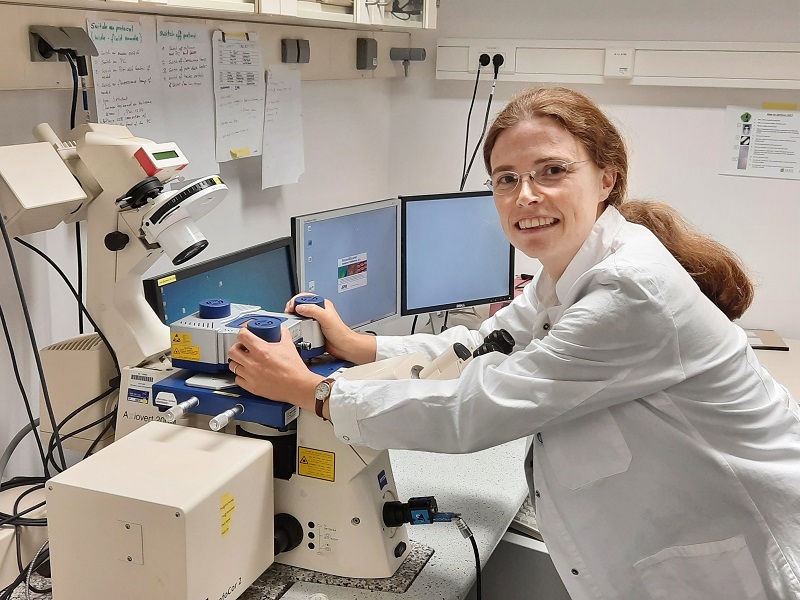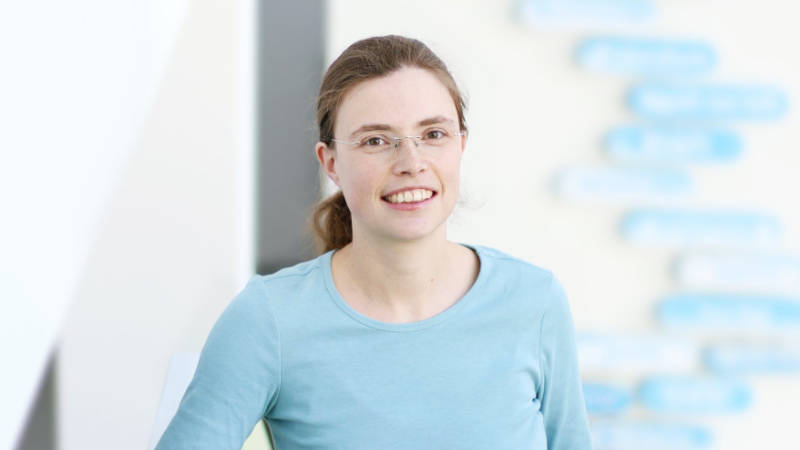PRESS RELEASE
Dresden, 25/11/2021
The ‘Hertha Sponer Prize for outstanding scientific work by a female physicist’ for 2022 is awarded to the scientist and group leader Dr. Elisabeth Fischer-Friedrich from the Cluster of Excellence Physics of Life (PoL) at TU Dresden. The award recognizes her outstanding theoretical and experimental contributions to the characterization of the mechanical properties of cells and protein condensates.
Traditionally, the German Physical Society names its prize winners for different physics disciplines and categories on the "Day of the DPG" and honors outstanding scientists with the honorary physics prizes every year. The Hertha Sponer Prize is awarded to a female scientist for outstanding scientific work in the field of physics. The prize is primarily intended to encourage younger female scientists by publicly honoring them and thus attract more women to physics. The award for Dr. Elisabeth Fischer-Friedrich is expected to be presented in March 2022 during the DPG annual meeting in Erlangen.
With her investigations, Dr. Elisabeth Fischer-Friedrich has contributed significantly to the characterization of the mechanical properties of cells and protein condensates. To this end, she developed techniques that link experiment and theory. Her work provided insights into previously unknown mechanical properties of cells. For example, she showed that a cellular transition which is linked to metastasis of carcinoma leads also to a change in the stiffness of cancer cells.
Elisabeth Fischer-Friedrich studied Physics at Leipzig University and Edinburgh University and then continued her career with a PhD in Biophysics dedicated to the characterization and modelling of dynamic pattern formation of proteins in the bacterium Escherichia coli at the Max Planck Institute for the Physics of Complex Systems and Saarbrücken University. Elisabeth did a postdoc at the Weizmann Institute of Science in Israel where she studied the structure formation of polymers of the bacterial cytoskeleton. In a second postdoc at the Max Planck Institute of Molecular Cell Biology and Genetics and the Max Planck Institute for the Physics of Complex Systems, both located in Dresden, she turned towards experimental biophysics and started to examine mechanical properties of animal cells and their role in the regulation of cellular shape. Since 2017, Elisabeth Fischer-Friedrich has been an independent research group leader at the TU Dresden exploring viscoelastic mechanical properties of cells and tissues in relation to biological function.
Since November 2019, Elisabeth is a group leader for Mechanics of Active Biomaterials at the Cluster of Excellence Physics of Life (PoL) at the TU Dresden. Her research group combines biological experiments at the cellular and tissue level with methods of theoretical physics to uncover mechanisms by which cells regulate intracellular forces and cell shape.
Please also see the Press release by Deutsche Physikalische Gesellschaft DPG (German Physical Society) (November 18, 2021) and the information on the website of the Hertha Sponer Prize
Further information:
Dr. Elisabeth Fischer-Friedrich
Group leader for Mechanics of Active Biomaterials
DFG Cluster of Excellence Physics of Life (PoL), TU Dresden
Phone: +49 351 463-40325
Email: elisabeth.fischer-friedrich@tu-dresden.de
Media contact PoL:
Bianka Claus
Public relations
DFG Cluster of Excellence Physics of Life (PoL), TU Dresden
Phone: +49 351 463-40133
Email: bianka.claus@tu-dresden.de

